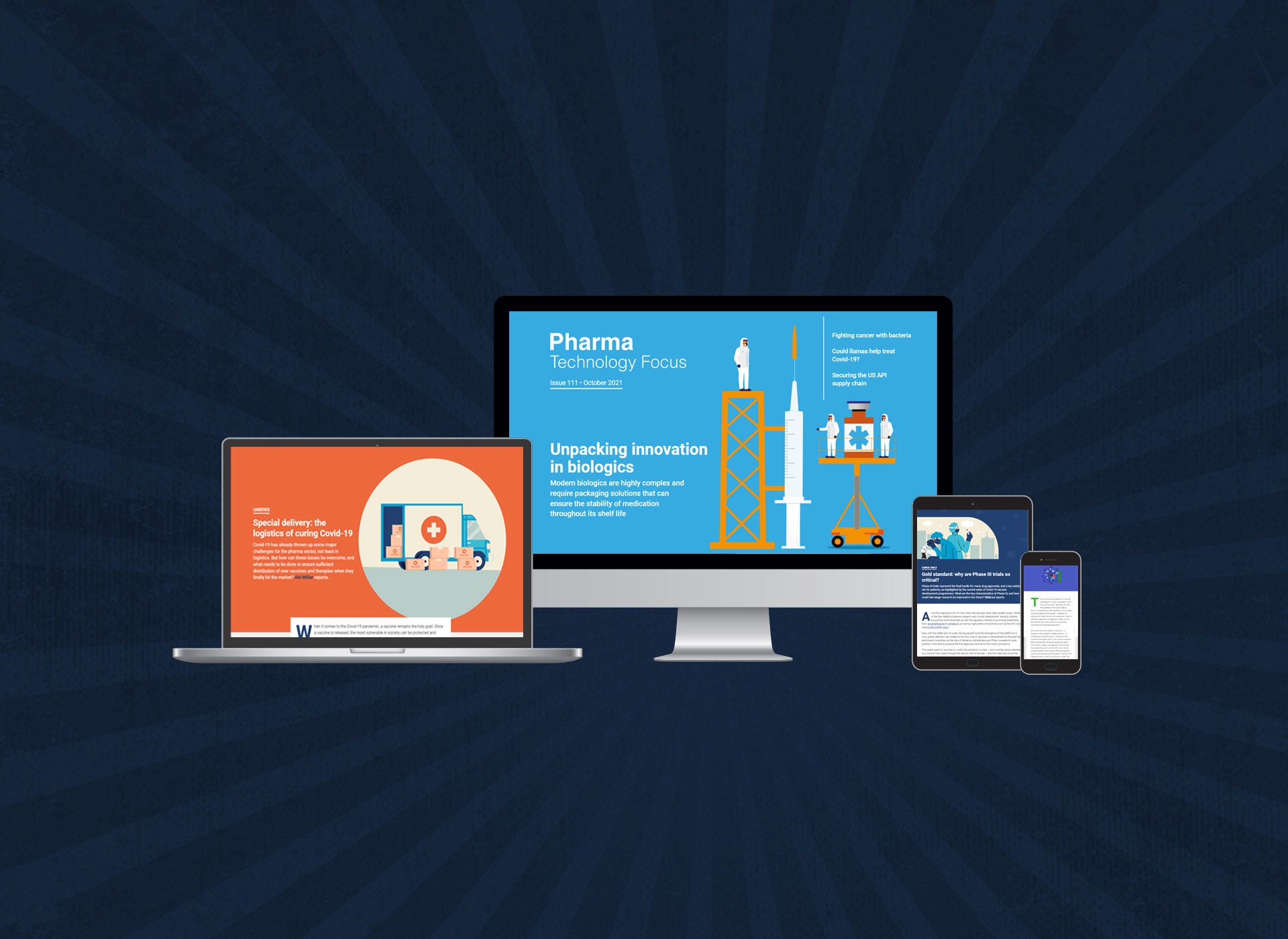
Pharma Technology Focus is now available on all devices. Read it for free here.
Biologics have revolutionised drug development across medical sectors, being used to treat a wide array of diseases and conditions. But, with each new advancement in the sector comes a new challenge for the packaging solution used to ensure the safety and stability of these complex drugs throughout their designated shelf life.

Discover B2B Marketing That Performs
Combine business intelligence and editorial excellence to reach engaged professionals across 36 leading media platforms.
To find out more, we unpack key developments in biologics packaging that are helping practitioners and patients to store and administer treatments.
Keeping with the topic of living medicines, scientists have reportedly identified the role bacteria can play in cancer growth and resistance to chemotherapy drugs – but these tiny microbes could prove useful in treating the disease, too. To learn more, we examine the promises and limitations of therapeutic bacteria as an approach to treating cancer.
Elsewhere in this issue, we take a look at the marred history of HIV vaccine trials, ask if Covid-19 has exposed serious weaknesses in the US pharma supply chain, and find out why innovation in pharmacovigilance is necessary in a post-pandemic world.
All this, plus the latest insight and analysis from GlobalData.

US Tariffs are shifting - will you react or anticipate?
Don’t let policy changes catch you off guard. Stay proactive with real-time data and expert analysis.
By GlobalData
In this issue

Unpacking the complex challenge of biologics
The structural complexity of modern biologics presents packaging manufacturers with a new challenge when it comes to ensuring the drug remains stable throughout its designated shelf life. To find out more, Darcy Jimenez unpacks key developments in biologics packaging that are helping patients to store and administer treatments at home.
Read the article here.

Living medicines: using bacteria to fight cancer
In recent years, scientists have realised the role bacteria can play in cancer growth and resistance to chemotherapy drugs – but these tiny microbes could prove useful in treating the disease, too. Abi Millar examines the promises and limitations of therapeutic bacteria an as approach to treating cancer.
Read the article here.

The marred history of HIV vaccine trials
Following recent news that Moderna is set to start human trials of its mRNA HIV vaccine, there is new hope that a successful vaccine may be on the horizon. To find out more Kezia Parkins charts the history of past attempts.
Read the article here.

Has Covid-19 exposed the weakness of the US pharma supply chain?
A recent study revealed that over 80% of APIs for essential medicines across key therapeutic areas have no US manufacturing source. Darcy Jimenez investigates how this reliance on other nations for resources could present a problem for US drug companies.
Read the article here.

How the pandemic pushed pharmacovigilance to innovate
The Covid-19 pandemic has thrust drug safety firmly into the spotlight over the past two years. Darcy Jimenez speaks to IQVIA’s vice-president and global head of lifecycle safety Annette Williams about the ways pharmacovigilance has responded to Covid-19.
Read the article here.

ExeVir: the llama-derived antibody that could fight Covid-19
In a quest to develop effective antibodies to fight Covid-19, scientists from Belgian biotech ExeVir have turned to an unusual source – the llama. Darcy Jimenez speaks to ExeVir CEO Torsten Mumenbrauer about the company’s research and the potential of its lead antibody, XVR011.
Read the article here.
Next issue preview
With vaccination programmes now in full swing throughout a multitude of nations, evidence supporting the need for booster shots to help defend against waning immunity and emerging variants has been mounting.
But while some countries are preparing to conduct a nationwide booster programme, elsewhere in the world governments have struggled to access enough vaccine supply to provide citizens with a primary dose.
This variance in vaccine rollouts has sparked international debate that wealthier nations are failing to address the pandemic on a global scale. To find out more, we examine the ethics of promoting third booster shots in the world’s wealthiest countries.
Also in the next issue, we get to grips with the realities of optimising real-world data in the fight against rare diseases, and explore the latest industry trends and innovations with GlobalData experts and analysts.




